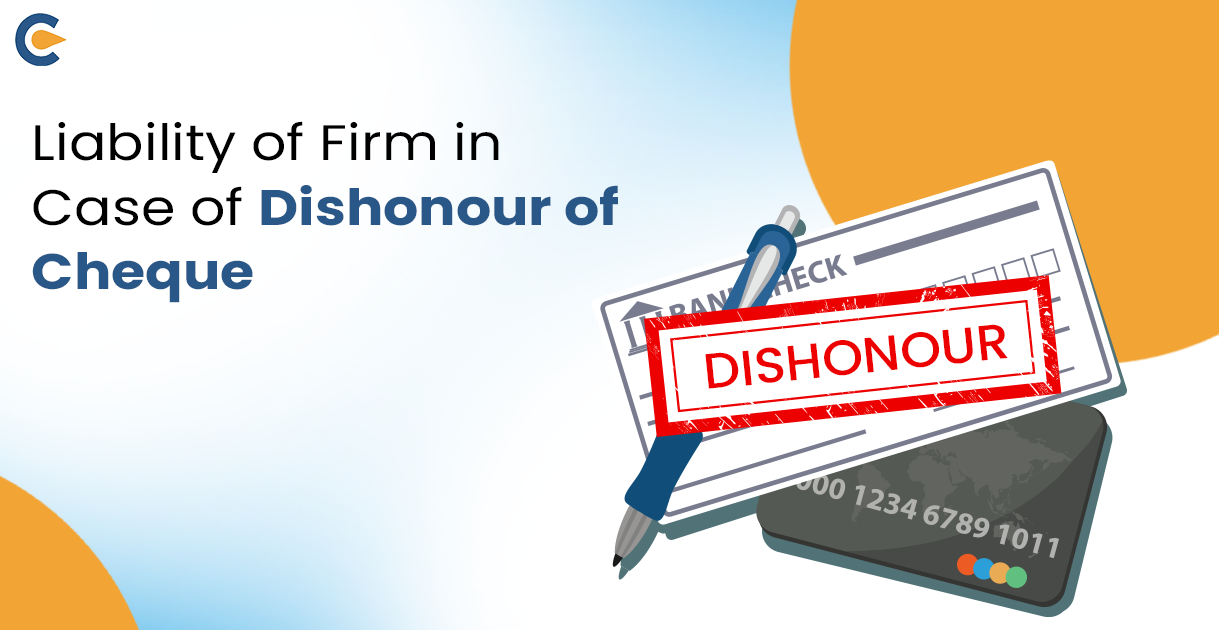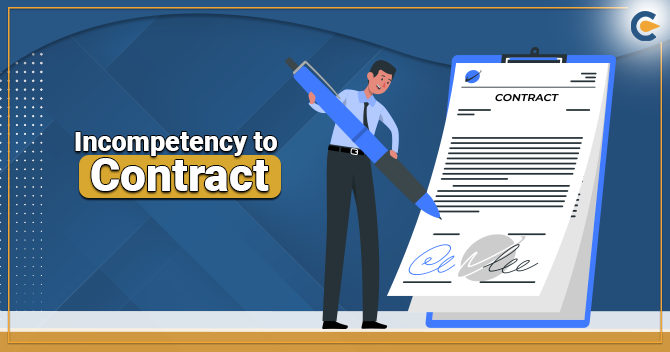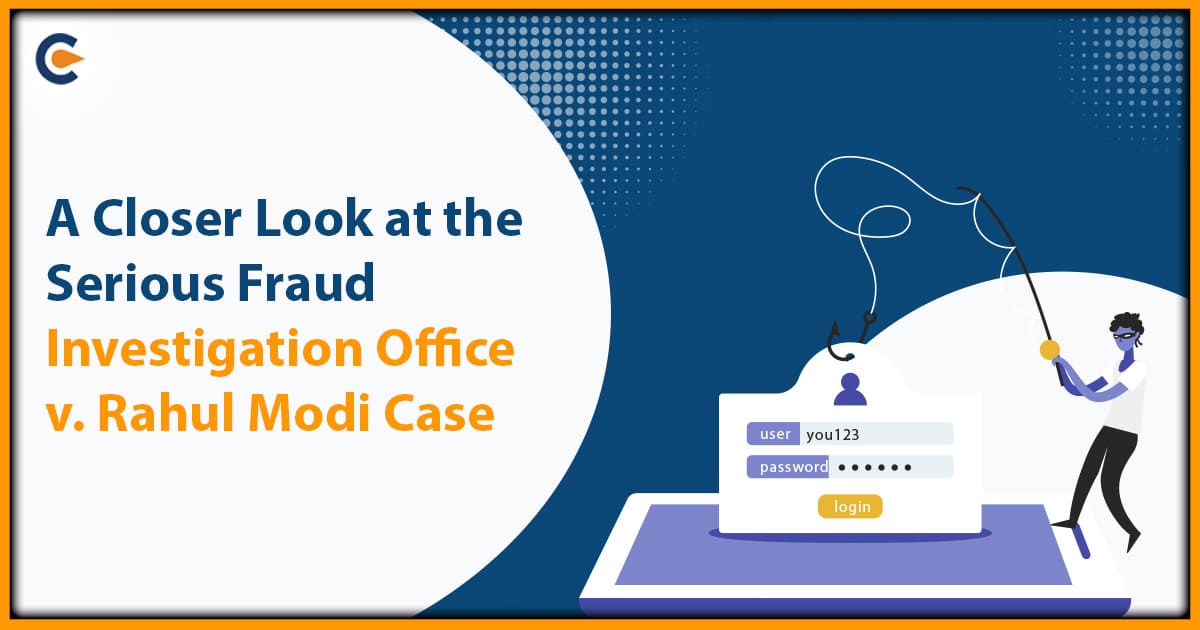In an appeal filed in the case of Siby Thomas vs. Somany Ceramics Ltd., under Section 138 of the NI Act which talks about dishonour of cheque, a person was identified as an offender for the sole reason that he was a partner of the partnership business that issued the cheque. Justices CT Ravikumar and PV Sanjay Kumar made up the bench hearing the case.
The Punjab and Haryana High Court declined to dismiss the case in the exercise of its authority under Section 482 CrPC prompting the filing of an appeal. Now, we will be discussing the case of Siby Thomas v. Somany Ceramics Ltd. along with understanding the relevant provisions, facts of the case and the judgement.
Relevant Provisions
- Section 138 of the Negotiable Instruments Act, 1881 – Dishonour of cheque for insufficiency, etc., of funds in the account.
In the event that a person draws a cheque on a bank account, he maintains with a banker for the payment of any amount to any other person from that account for the discharge of payment, in whole or in part, of any debt or other liability, and the bank returns the check unpaid, either because there is not enough money to honour the check or because the amount exceeds the amount agreed upon to be paid from that account by an agreement with the bank, that person will be regarded to have committed an offence and will, in addition to any other provisions of this Act shall be punished with imprisonment which may extend to two years, or a fine equal to double the value of the check, or with both:
This section of dishonour of cheque will not be applicable unless the following conditions are met:
- the cheque is presented to the bank within six months of the date it is drawn or within the validity period, whichever is earlier;
- within thirty days of receiving notification from the bank that the cheque is being returned as unpaid, the holer or payee of the cheque, as applicable, demands that the stated amount of money be paid by sending a written notice to the cheque’s drawer; and
- Within fifteen days after receiving the aforementioned notification, the drawer of the said check fails to pay the specified amount of money to the payee or, if applicable, to the holder in the course of the cheque.
- Section 141 of the Negotiable Instruments Act, 1881 – Offences by companies.
- If the entity violating Section 138 (dishonour of cheque) is a company, then each individual who, at the time of the offence, was in charge of and accountable to the company for the management of the company’s business operations shall be considered guilty of the offence and subject to appropriate legal action and punishment:
With the exception that nothing in this subsection will subject someone to penalty if they can demonstrate that the crime was committed without their knowledge or that they took all reasonable precautions to stop it from happening:
Furthermore, a person shall not be subject to prosecution under this Chapter if they are nominated as a Director of a company by virtue of their employment or office in the Central or State governments, or in a financial corporation under their ownership or control, as the case may be.
- Notwithstanding the provisions of sub-section (1), in the event that a company commits an offence under this Act and it is established that the offence was committed with the knowledge or assistance of or is related to, the negligence of, a director, manager, secretary, or other officers of the company, such director, manager, secretary, or other officers shall also be presumed that he has committed the offence and shall be liable for legal action and punishment as appropriate.
Understanding Section 141 of the NI Act
The NI Act’s Section 141 introduces the vicarious liability concept. This section covers a number of NI Act offences, including dishonour of cheques. It’s crucial to remember that personal responsibility only applies when a company commits a crime. People who conduct crimes in their individual capacities are not covered by this section.
Vicarious Liability in the context of dishonour of cheque cases
A legal maxim known as vicarious liability makes one person accountable for the deeds of another. This provision states that if a corporation commits an NI Act offence, both the firm and everyone who was in control of and accountable for the company’s business activity at the time of the offence of dishonour of cheque would be considered guilty of the offence. According to this clause, those who are connected to the business may be held accountable for its deeds.
Potential consequences of being held liable under this section
- In order to establish culpability under Section 141 of the NI Act, it is necessary to provide evidence that the defendant participated actively in the management of the enterprise and contributed to the commission of the offence of dishonour of cheque.
- Being a nominal head or only designated may not be enough.
- The prosecution needs to show a clear connection between the defendant’s involvement and the offence being committed.
- The prosecution must demonstrate that the offence was done with the victim’s negligence, acquiescence, or connivance.
Defences that can be taken under Section 141 of the NI Act
- If those charged under Section 141 of the NI Act are able to demonstrate that the offence was committed without their knowledge or that they took reasonable precautions to stop it from happening, they may be exonerated from prosecution.
- Nonetheless, it is the accused’s responsibility to prove these defences.
Facts of the case: Siby Thomas v. Somany Ceramics Ltd. [2023 LiveLaw (SC) 869]
- On August 21, 2015, M/s. Somany Ceramics Ltd., the Respondent, filed a complaint against M/s. Tile Store, the Partnership Firm (“Accused no. 1”), and the partners of the Firm for dishonour of cheque. The Appellant-Accused no. 4 (Mr. Siby Thomas), a partner in the firm, appeared before the Ld. Chief Judicial Magistrate (“CJM”) of Bahadurgarh on October 20, 2015, in COMA-321-2015.
- The appellant approached the High Court of Punjab while the case was still pending before the CJM and presented two arguments to have the complaint against him quashed. He stated that he had resigned from the Partnership Firm on May 28, 2013, that the dishonour of cheque in question was dated August 21, 2015, and that the complaint lacked the mandatory allegations that are required under Section 141 (1) of the Negotiable Instruments Act, 1881.
- The High Court of Punjab determined that the Appellant was required to present evidence and establish the facts in order for the Complaint against him to be maintainable. This pertains to the Appellant’s retirement from the Partnership Firm prior to the issuance of the disputed check.
- In addition, it was decided that the Appellant’s first request to dismiss the Complaint cannot be granted in this case when the Code of Criminal Procedural 1973 (Cr. P.C.) Section 482 (Saving of inherent powers of High Court) is invoked. As a result, the High Court declined to dismiss the complaint in CRM-M-52299-2019 via an Order dated December 6, 2019.
- The appellant filed Criminal Appeal No. 3139 of 2023 in the Supreme Court, citing grievances over the Order dated 06.12.2019 issued by the Punjab High Court.
Issue of the Case
Whether the averments referred to hereinbefore are sufficient to prosecute the appellant under Section 138 (dishonour of cheque) of the NI Act.
Court’s Observation and Interpretation
The appellant’s status as a partner in the business was the only claim made in the complaint about his culpability, according to the Supreme Court. This was the pertinent allegation in the complaint: “The accused Nos. 2 to 6 being the partners are responsible for the day-to-day conduct and business of the accused No. 1.”
The appellant was not in charge of the company’s business operations at the pertinent period when the offence was committed, as there is no so averred anywhere in the complaint. The lawsuit just states that the partners, or accused Nos. 2 through 6, are in charge of the day-to-day operations and behaviour of the corporation. It’s also important to emphasize that a cursory reading of the complaint would not reveal the appellant’s precise participation, the Court noted. It further noted that the appellant had responded to the complainant’s notice stating that he had left the company two years before the cheque was issued.
“The Court’s observation leads to the conclusion that the respondent’s complaint’s allegations are insufficient to meet Section 141(1) of the NI Act’s statutory standards. The appellant is entitled to victory in this appeal as the averments in the complaint are inadequate to trigger the requirements under Section 141(1) of the NI Act, creating vicarious obligation onto the appellant,” the court declared, granting the appeal.
Referred Cases or Precedents
- Anita Malhotra v. Apparel Export Promotion Council & Anr.
In this case, the Supreme Court said, “the complaint should specifically spell out how and in what manner the Director was responsible for the accused company’s business conduct or was in charge of it.” The court went on to say that it is insufficient to just claim that someone is in control of and accountable to the firm for the way its business is conducted.
- Ashok Shewakramani v. State Of Andhra Pradesh
In this case, the Supreme Court held that just because someone is managing the company’s affairs, per se, he would not become in charge of the conduct of the company’s business or the person responsible to the company for the conduct of the company’s business.
- S.P. Mani and Mohan Dairy v. Dr. Snehalatha Elangovan
In this case, the court noted that in order to hold the accused vicariously liable, the complainant must first establish specific allegations in the complaint.
The judgment of the Supreme Court was based on these legal precedents, especially the case of Ashok Shewakramani v. State Of Andhra Pradesh sets the true basis of this judgement.
Final Verdict of the Court
Therefore, it is clear from the ruling in Ashok Shewakramani’s case that vicarious liability in case of dishonour of cheque would only arise if the requirements of Section 141(1) of the NI Act are met. It would also show that someone managing the company’s affairs does not automatically have him or her in control of how the firm is run or the person accountable to the company for that conduct.
A bare reading of Section 141(1) of the NI Act would indicate that the only person who would be considered guilty of the offence and subject to legal action and punishment is the person who, at the time the offence was committed, was in charge of and accountable to the company for the conduct of the company’s business. In the above instance of Ashok Shewakramani, paragraph 20 is equally pertinent in this situation. Following a reference to NI Act Section 141(1), it was further held in paragraph 20 as follows:
“It is clear from a bare reading that the phrases “was in charge of” and “was responsible to the firm for the conduct of the company’s operations” cannot be interpreted as mutually exclusive; rather, given the usage of the word “and” between them, they should be interpreted as complementary.”
The rationale above leads to the conclusion that the respondent’s complaint’s allegations are insufficient to meet Section 141(1) of the NI Act’s statutory standards for dishonour of cheque.
The bench comprising of Justices CT Ravikumar and PV Sanjay Kumar said that the accused No. 4 is allowed to win this appeal since the complaint’s allegations are not strong enough to trigger the requirements under Section 141(1) of the NI Act that would subject the appellant to vicarious liability. We are certain that, in exercising our authority under Section 482 of the CrPC, the appellant has established a case for the quashing of the criminal charge against him.
The impugned order is ultimately set aside, and the criminal complaint filed by the respondent in the matter titled M/s. Somany Ceramics v. M/s. Tile Store etc. vide COMA-321-2015 (CNRNO: HRJRA1004637-2015), which is currently pending before Ld. CJ (JD) JMIC, Bahadurgarh, is quashed only to the extent that it concerns the appellant, who is accused No. 4.
Conclusion
In this judgement, the Supreme Court has referred to Section 141(1) of the Negotiable Instruments Act, which clearly states that “Only that person who, at the time the offence was committed, was in charge of and was responsible to the company for the conduct of the business of the company, as well as the company alone shall be deemed to be guilty of the offence and shall be liable to be proceeded against and punished.” Therefore, the Supreme Court has also referred to the case of Ashok Shewakramani v. State Of Andhra Pradesh and reiterated the principles governing a director’s responsibility for the dishonour of cheque that the business issues.
It has been made clear in case of dishonour of cheque issued by the company, the liability will only arise on the person, whether a manager or director who was in charge of the company at the time when the offence was committed, and he was also responsible for the conduct of company’s business. Therefore, the managing partner, who was not part of the company when the offence was committed and has neither signed the cheque on behalf of the company that has been dishonoured cannot be held vicariously liable for dishonour of cheque.
Frequently asked questions
When a payee is unable to deposit the payer’s cheque, the cheque is considered dishonoured. The person who gives the payee a cheque is known as the payer. This cheque is deposited at the bank by the payee. The cheque is considered dishonoured if the bank declines to pay the amount shown on the cheque.
Section 138 states that the payee may file a lawsuit against the drawer in a magistrate court if the drawer refuses to honour a cheque because there is not enough money.
The only person accountable for the company’s operations at the time of the cheque dishonour will be held liable..
Cheque bouncing and dishonouring a cheque are crimes according to Section 138, which carries a maximum sentence of two years in jail and a maximum fine of double the value of the cheque.
The idea of a cheque bounce and a cheque dishonoured are almost the same; the only distinction is that a cheque bounces when there aren’t enough funds in the drawer’s account, while a cheque is dishonoured when it has different signatures, a wrong date, or an incorrect or missing amount.
Using digital banking is a cost-effective method of avoiding cheque dishonour costs. Consider making an online money transfer instead of writing a cheque. To transfer money to accounts held by third parties, use NetBanking or Mobile Banking.
The payer has three months from the date on the cheque to resubmit it if they think it will be honored a second time.
When a payment bounces because there aren’t enough funds in your bank account or your account is closed, you’ll be charged a dishonored payment fee. A dishonored payment charge might also result from inadvertently using the incorrect payment details..
The Negotiable Instruments Act of 1881 has penal provisions in relation to cheques that bounce because there is not enough money. A cheque that bounces because there isn’t enough money in the drawer’s account is subject to penalties under Section 138 of the NI Act.
Repeat violators now face harsher penalties under the new statute. A person may be imprisoned for up to two years and fined up to double the value of the check if they have been found guilty of check bounce twice or more.
Within fifteen days of the cheque being dishonored, a legal notification with all pertinent facts must be issued by registered mail to the drawer.
Read Our Article: Dishonour Of Cheque: What Does It Mean?











